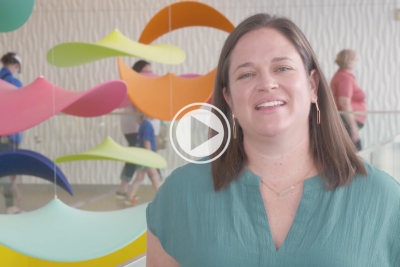Recently, we celebrated my son’s eighth birthday and the start of the new school year, all within a week or so. In Missouri, children must be five by Aug. 1 in order to start kindergarten that year. As my son spent a full year explaining to everyone he met, his birthday missed the cut off so he started kindergarten shortly after turning 6, making him one of the oldest kids in the class.
Much is made of when children should start school. Some parents will put their child in a private school with different age requirements that allows them to start at age four. Other parents will hold their child back and allow him to start when he is older. As a pediatrician, I am often asked whether a particular child is ready to start school. I often answer that if a child can sit in a chair and pay attention then he is ready for school. However, as with most things, the answer is a bit more complicated than that.
A recent technical report from the American Academy of Pediatrics (AAP) describes three components that can be used to define school readiness.
- Is the child ready for school? The child should exhibit self-regulation, impulse control, the ability to limit disruptive behaviors, cooperation and empathy. He should have general knowledge and show early literacy and math skills. He should approach learning with curiosity and enthusiasm.
- Is the school ready for the child? The school should demonstrate cultural sensitivity allowing the child to transition seamlessly between the home and school environment. There should be continuity between early childhood education programs and elementary schools. The school should provide opportunities for parent engagement and be invested in the success of every teacher. Finally, the school should be prepared to meet the special needs of students within the regular classroom.
- Are family and community supports in place to help the child? The community should offer high-quality preschool. Prenatal care should be easily accessible. Programs should be in place to support parents and help them become effective teachers to their children. In Missouri, we have the Parents as Teachers Program which is provided through each school district. This program connects each family with a trained parent educator who provides home visits, developmental screens, encouragement and guidance.
What can parents do at home and within their communities to ensure that their children are ready to start school?
- Create daily learning opportunities. For a child, all early experiences are learning opportunities. From birth, read to your child and play music. As she grows, give her opportunities to safely explore her surroundings. Go outside. Let her use her body to run, hop and climb. Teach her skills that make her self-sufficient. Have playdates with other children to learn social skills.
- Identify problems early. Provide your child with a medical home. Regular visits with a pediatrician are crucial to ensuring your child’s physical and mental health. Developmental screenings performed at scheduled intervals result in early identification of developmental delays which could impact school readiness if not treated. Early identification leads to early intervention which is associated with better learning outcomes.
- Limit screen time. The AAP recommends that screen time for children should be done with the parent. Make the time interactive. Talk with your child about what he is seeing. Limit the time to only 1-2 hours daily.
The more we learn about early brain and child development, the more apparent it becomes that early childhood experiences are a crucial part of school success. Parents are a child’s first, and often, best teacher.






Comments